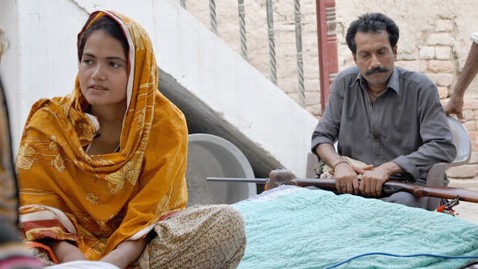New Film Investigates Rape, Politics in Pakistan
A 13-year-old says she got raped by four men, her country wants her to die: That's the saga of Kainat Soomro, who's been fighting for justice in Pakistan for four years.
Since Soomro's alleged rape, she and her relatives have lived in fear that a Pakistani tribunal will order her parents to carry out an honor killing on the grounds that being raped brings shame to the family - something that happens frequently in Pakistani rape cases. Her parents refused to accept that fate. They hired an attorney, made court appeals, and appeared on TV in an effort to bring her alleged rapists to light.
They've suffered in the process: The family had to move, Soomro's father and brother were beaten by the alleged rapists, and her older brother, Sabir, went missing for three months and was later found murdered.
Soomro's struggle inspired a documentary, "Outlawed in Pakistan," which premiered at the Sundance Film Festival last month and will air on PBS' "Frontline" this spring.

Kainat Soomro and her father. Credit: Hilke Schellmann.
The film comes at a time when the welfare of women in India and Pakistan is making headlines around the world. The December gang rape and death of 23-year old Jyoti Singh Pandey set off public protests in Delhi and prompted four Indian states to enact measures to better ensure women's safety. The case of Malala Yousafzai, the Pakistani teenager who the Taliban shot in the head last year because she stood up for girls' education, launched a UN petition to outlaw discrimination against girls.
For the filmmakers behind "Outlawed in Pakistan," Habiba Nosheen and Hilke Schellmann, the fact that these cases are sparking protests is a sign that change is happening. I sat down with Nosheen and Schellmann in Park City, Utah, to find out about the making of their documentary and talk about what needs to happen for cases like Soomro's to stop.